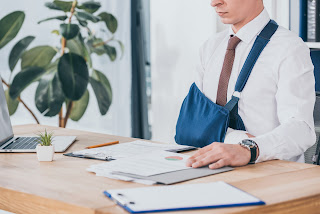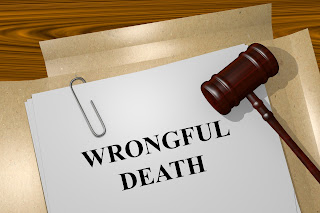Reports from Police and other First Responders
When you’re involved in an accident, it’s always a good idea to call 911 or your local law enforcement agency. Police reports, fire department reports and EMT reports are valuable pieces of evidence that can back up the facts of your personal injury claim. In addition to first responders’ observations, these reports sometimes contain witness statements that may be vital to proving your case.
Incident Reports
If you were injured at a business, construction site or another property, a manager or supervisor may create an incident report. If possible, you should obtain a copy of any type of accident-related report before you leave the scene.
Witness Statements
Written or recorded witness statements serve multiple purposes. Documentation of witnesses’ observations, while they are fresh, can provide compelling evidence of how an accident or injury occurred. Witness statements may offer important details that help accident reconstructionists determine what happened. Gathering witness statements and contact information right away may also prevent them from forgetting or changing their story later on.
Bills and Receipts
Even the best personal injury lawyers need quantifiable proof of your losses and damages to put an accurate value on your claim. Make sure to keep all of your bills and receipts for medical costs and any other accident-related expenses. Medical reports, records, or explanations of benefits should also be saved. You may also be able to recover compensation for travel expenses to and from medical appointments, so make sure to give these to your attorney as well.
Proof of Lost Wages
Paystubs, W-2 information, work schedules and other employment-related information help prove wage loss and can be important evidence when demonstrating loss of future income and earning capacity.
Insurance Information
Insurance companies are usually involved in most personal injury claims. If you are the victim of a motor vehicle crash, make sure to obtain the insurance information of everyone involved. Your car accident lawyer will also want your auto insurance policy information. Depending on the type of case, you may need a negligent party’s homeowner’s or renter’s insurance information. Keep any correspondence you receive from any insurance provider, even your own.
Your Notes and Journal
Jotting down notes immediately following an accident can help document critical details you may forget later. In addition, keeping a journal documenting your injuries, daily level of pain, feelings, appointments, and day-to-day activities can paint a picture of how your life has been impacted. Your attorney can use this information to establish the physical, emotional, and financial costs of your injuries and losses.
If you need assistance gathering documents for a personal injury claim, contact an attorney to learn more.
This blog was originally posted on https://www.pa4law.com/documents-needed-for-filing-a-personal-injury-lawsuit/
























